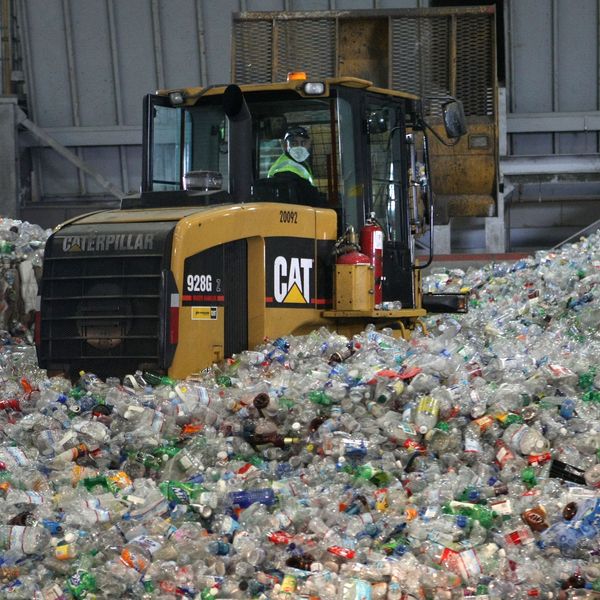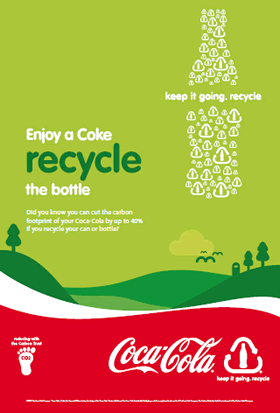What if you woke up one morning to learn that your community had become enlisted to advertise for Coca-Cola? You didn't have a choice. People in neighborhoods across your city were told the same thing. That's basically what happened in the city of Chicago this week when Mayor Rahm Emanuel announced a partnership with Coca-Cola. In the announcement on Monday, the City explained that the soft drink behemoth will pay for new recycling carts across the city of Chicago.
According to the Mayor's office, Coca-Cola is providing a $2.59 million grant to buy 25,000 recycling carts this year and 25,000 more over the next five years to replace damaged ones. But, at the press conference making the big announcement, the Chicago Tribune reported, neither the Mayor nor Coke reps mentioned that "photos of bottles of Coke and cartons of Coke-owned Minute Maid orange juice" will be part of the diagrams on the carts, showing what can and can't be recycled.
The city says this is a win-win. Residents get support in recycling, the city gets subsidized bins. But at what price? Call me old fashioned, but I thought we still lived in a country where you had a right not to be used as a marketing tool by multinational companies.
The new bins will be placed in the alleys that are found throughout the city. If you've ever spent time in Chicago you know what those alleys mean to the city. People hang out all the time on their back porches, which face the alleys. There's often more activity in the alleys than on the sidewalks out front of apartments and houses. My husband grew up on the South side of Chicago. "As a kid," he said, "I spent all my time playing in those alleys. That's where the city life exists, in the alleys."
When I told my friend who spent five years working with youth in Chicago about it, she said: "In a city where many neighborhoods don't have enough access to public space, plenty of kids play in alleys, set up b-ball hoops and pick up soccer games. It's as if Coke and the food industry has bought the rights to sponsor every step our youth take from school to home and everywhere in between."
No one will deny that the city--all cities--need revenue to support important programs, like recycling, but there are many other ways to generate it other than enlisting your residents to become advertisers.
As the Tribune points out, Coca-Cola "has been fighting government efforts around the country to place restrictions on its sugary beverages." It is no coincidence that this announcement gets Coca-Cola positive PR by linking them "to a large-scale environmentally friendly program in a big city," while the company fights efforts across the country that would protect public health.
Will you join me in letting Rahm know recycling bins should be commercial-free?



